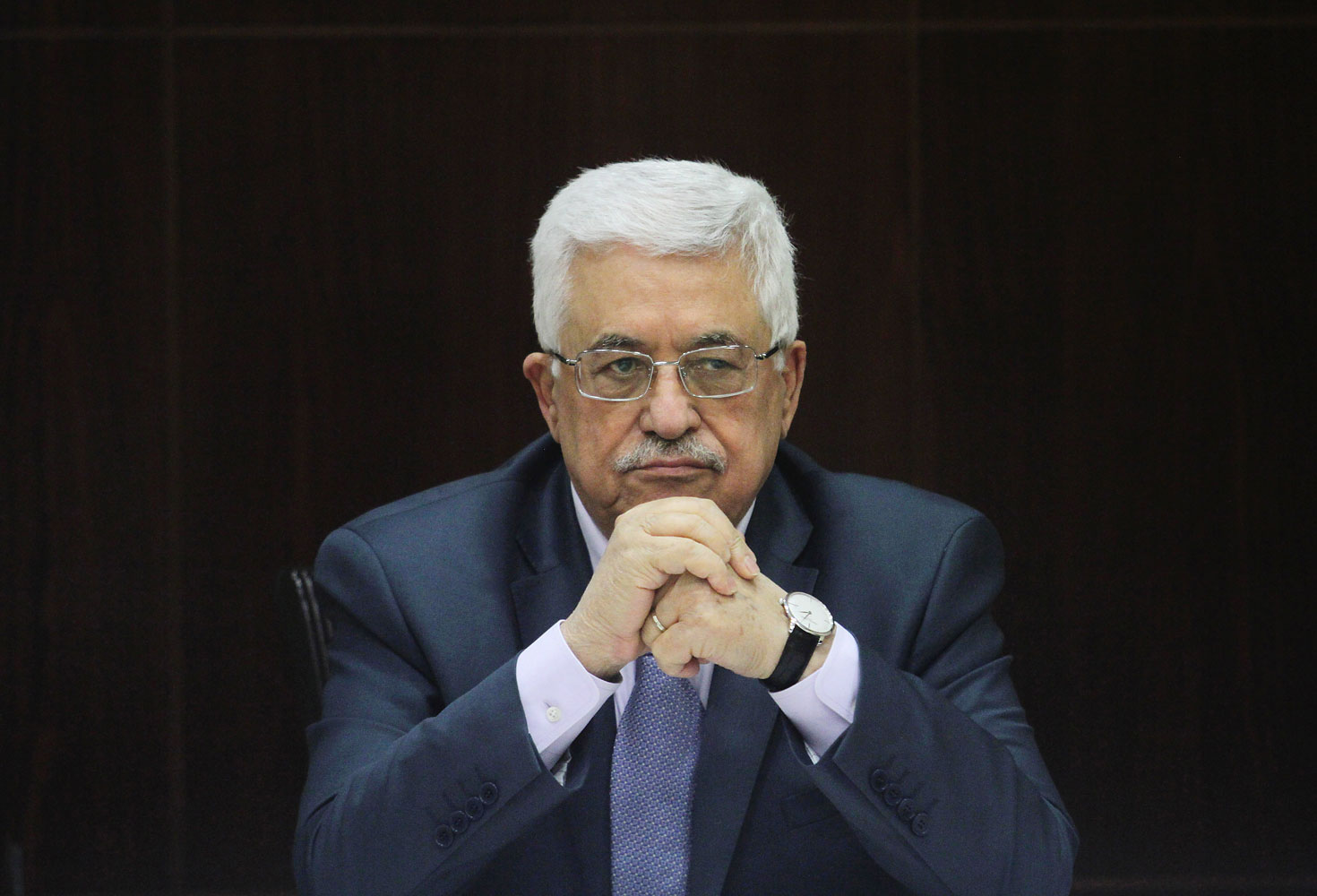
The visit to Washington by Israeli Prime Minister Benjamin Netanyahu did not appear to do much to enhance the chances for success in struggling peace talks with Palestinians. Netanyahu’s White House meeting on Monday was framed by a published warning from U.S. President Barack Obama to get serious about the talks, and a show of defiance from Netanyahu. Then the next day, the Israeli Premier pushed the onus on his opposite number, Palestinian Authority President Mahmoud Abbas, in a stem-winding speech to the American Israel Public Affairs Committee, or AIPAC, that divided the world into forces of light and darkness.
“If you look at it from the position of the Palestinians and the Israeli position, we’re pulling apart,” Xavier Abu Eid, spokesman for the Palestine Liberation Organization’s (PLO) negotiations unit, tells TIME. “It’s not like we’re getting closer.”
But that’s what most of the Palestinian leadership expected when Secretary of State John Kerry forced the two sides together in July. Only one member of the PLO executive committee voiced support for renewing negotiations on the terms Kerry offered — with no freeze on construction of Jewish settlements on Palestinian land and no agreement the 1967 borders would be the rough basis for a Palestinian state.
“We got nothing,” says Hanan Ashrawi, an executive-committee member, disregarding Israel’s release of hundreds of Palestinian prisoners as a gesture of good will. Still, polls show only half of Palestinians support the talks, and 70% believe they will fail — hardly an endorsement for Abbas, who overruled the PLO executive committee to agree to the talks, and has nothing yet to show for it.
“He’s trying to show seriousness of intent,” Ashrawi tells TIME. “But there are limits. He can go only so far without losing his standing, his support, his credibility. It’s not easy to go against Palestinian public opinion. We do not have a one-man show, a dictatorship. Public opinion is angry and … that increases support for alternatives, and that increases support for violence.”
“That’s why we got together and found support for other nonviolent means.”
Palestinian leaders are readying for a confrontation without violence. Once the talks fail — an outcome they regard as inevitable — the plan is to resume a diplomatic assault on Israel. The main venue will be the U.N., where the General Assembly in 2012 granted Palestine state status. The institution, broadly supportive of Palestine, offers other levers to pressure Israel, including access to the International Criminal Court.
“The U.N. is one place where you can show respect for multilateralism, international law, where you can empower the Palestinians, check Israeli violations and give people hope,” Ashrawi says. “So I described this is as a model, responsible legal approach — human approach — in order not to make the only alternative violence.”
The Palestinian public likes the idea, telling pollsters they would support a U.N. challenge to Israel even if it costs them crucial foreign aid.
At the same time, other activists are trying to pressure Israel economically, by identifying companies that do business with the settlements on occupied Palestinian territories. The effort was showcased in January when film star Scarlett Johansson stood by her endorsement of SodaStream, a beverage company that operates from a settlement, despite a hue and cry from activists calling for a boycott on such companies. Netanyahu mentioned Johansson twice in his AIPAC speech, which equated the boycott movement with anti-Semitism. “From antiquity to the Middle Ages to modern times, Jews were boycotted, discriminated against and singled out,” he said.
That historical reality exists beside another: the effort to deny financial support for settlements was pioneered years ago by Israeli Jews who refused to buy vegetables or wine produced on settlements. The effort to alter Israeli policy has since developed into a hydra-headed movement, which ranges from withholding investment from specific companies doing business in settlements because they are considered illegal under international law, to a broad boycott of all things Israeli. But even opponents acknowledge it appears to be picking up steam.
“I see it gaining ground,” says Ashrawi, “and I see how Netanyahu and others are reacting hysterically, trying to dismiss it but becoming obsessive about it, trying to say it’s not going to work because ‘We are the superior people in this part of the world, we are the people with values,’ unlike our barbaric neighbors, in other words. I’ve never heard such patronizing language.”
Israel should be grateful that Palestinian leaders are resorting to courts and diplomacy instead of violence, she says.
“And we don’t see it as a punishment,” Ashrawi adds. “We see it as a process of rectification, to address all the flaws, built in and imposed, that plagued the negotiations since 1991. This is a responsible, positive approach. Instead we’re getting bashed.”
More Must-Reads from TIME
- Donald Trump Is TIME's 2024 Person of the Year
- Why We Chose Trump as Person of the Year
- Is Intermittent Fasting Good or Bad for You?
- The 100 Must-Read Books of 2024
- The 20 Best Christmas TV Episodes
- Column: If Optimism Feels Ridiculous Now, Try Hope
- The Future of Climate Action Is Trade Policy
- Merle Bombardieri Is Helping People Make the Baby Decision
Contact us at letters@time.com